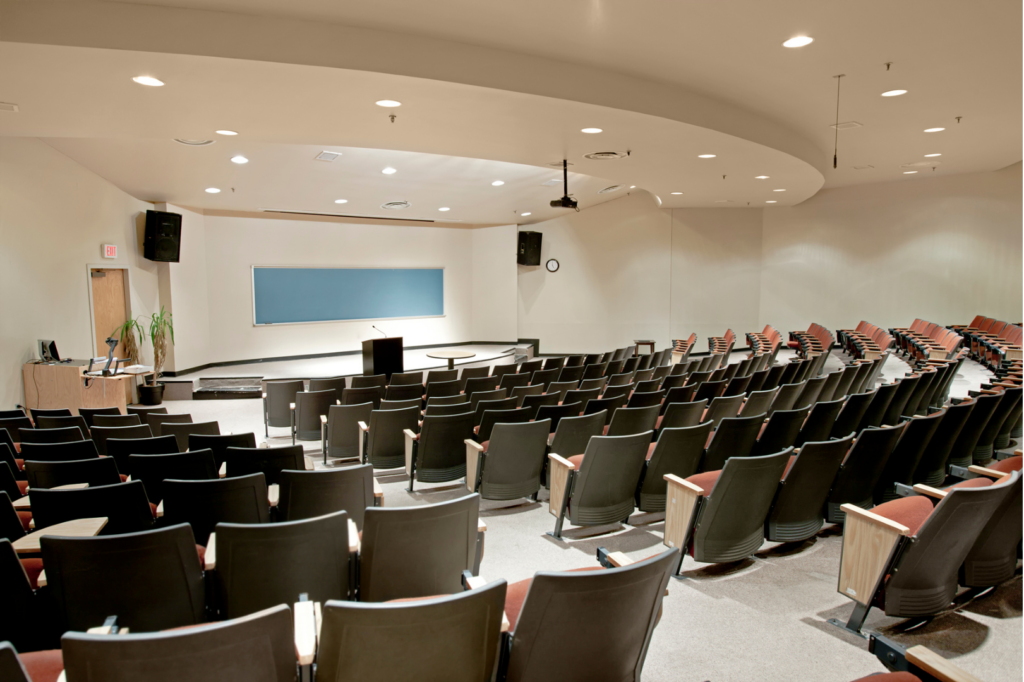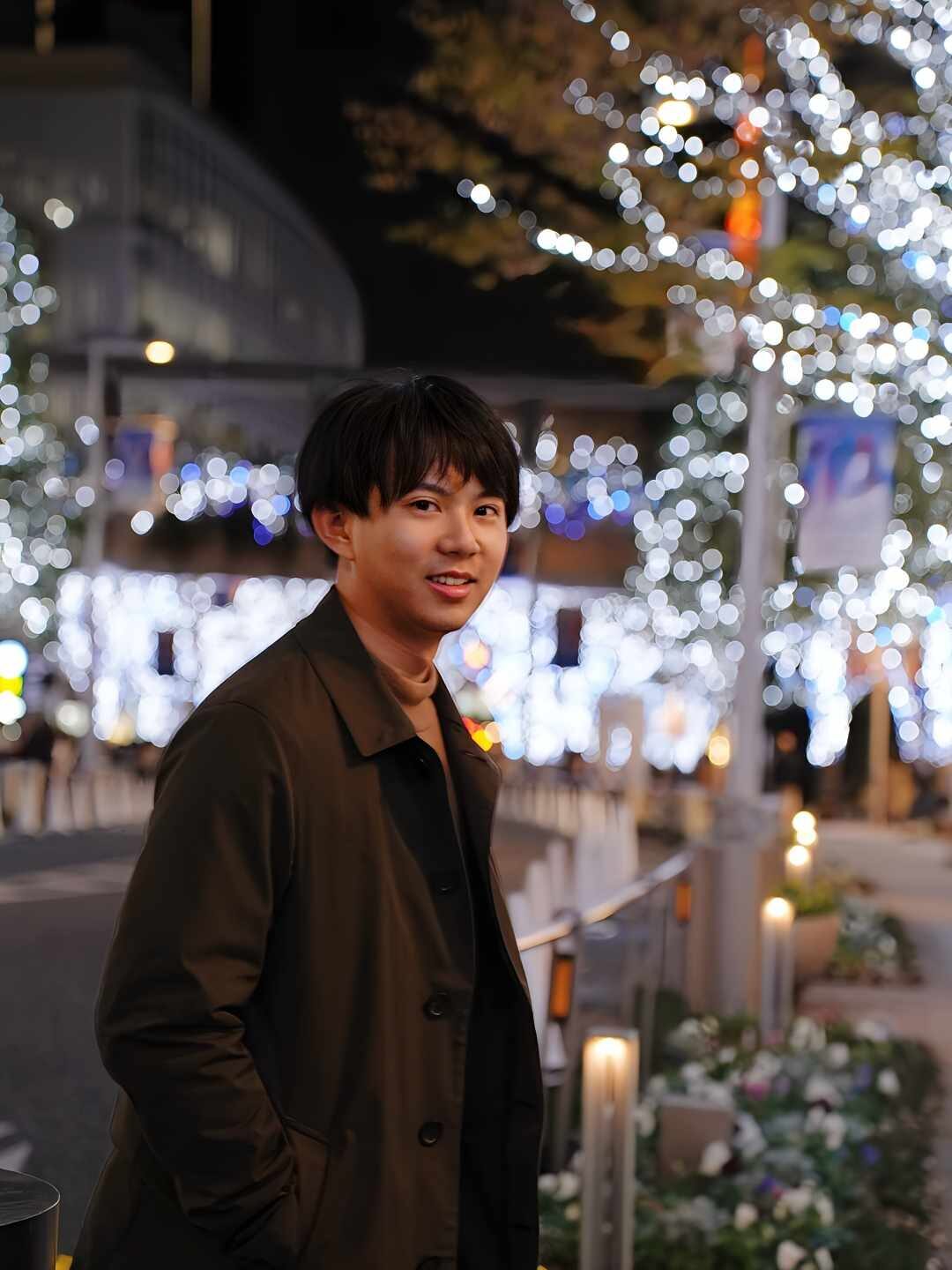Reasons to Choose Sendagaya – Reason 6
Reasons to Choose Sendagaya – Reason 6
Collaboration with Other Educational Institutions
At the Sendagaya Group, we collaborate with many higher education institutions, such as universities and vocational schools, to provide various opportunities for our students.

School Orientation Sessions for Sendagaya Students

■School Orientation Sessions
Representatives of university and vocational school admissions offices come to Sendagaya to conduct exclusive school orientation sessions for Sendagaya students.
During these sessions, students can receive school introductions, explanations about admissions, and listen to talks from current students, all directly from the representatives of universities and vocational schools.
Main participants of the orientation sessions: Teikyo University, Meiji University, Ritsumeikan University, Hosei University, Tokyo University of Science, and others.


Designated School Recommendations from Over 70 Schools
We receive designated school recommendations from over 70 graduate schools, universities, and vocational schools each year. Designated school recommendations allow students to apply if they meet the recommendation criteria set by each institution. Applying through designated school recommendations increases the chances of acceptance compared to regular applications, and may also include benefits such as waivers for written exams and reductions in application fees. Some schools start their recruitment in September, with results announced in October and November. Having a designated school recommendation spot can be advantageous for future planning, regardless of the outcome. The number of universities and vocational schools offering designated school recommendations is increasing every year.
Designated School Recommendation Achievements
Graduate School
Rissho University (Graduate School of Economics)
Universities
Teikyo University, Teikyo Heisei University, Hosei University, Kwansei Gakuin University, Toyo University, Nishogakusha University, Asia University, Gakushuin Women’s College, Shibaura Institute of Technology, Showa Women’s University, Takushoku University, Musashino University, Bunri University of Hospitality, Meikai University, Shumei University, Yokohama College of Commerce, Ryutsu Keizai University, Yamanashi Gakuin University, and others.
Vocational Schools
Tokyo Designer Academy, Tokyo Visual Arts Academy, Tokyo Cool Japan Academy, Tokyo Business Academy, Tokyo Hospitality Academy, Tokyo Automobile University School, Hiko Mizuno College of Jewelry, Nihon Kogakuin, Japan Electronics College, Tokyo Design Academy, Tokyo MODE GAKUEN College of Fashion & Design, Kyoto Culinary Art College, Akahori Confectionery College, Tokyo Business and Language College, The Japan Hotel School, Tokyo College of Sushi & Washoku, Tokyo Belle Époque Confectionery Culinary College, Tokyo Technical College, Yomiuri College of Car Mechanic, Hattori Nutrition College, Tokyo Animation College, and others.

Bridge Program
In this program, students who are enrolled in the Japanese language schools of the Sendagaya Group can study Japanese while taking courses at affiliated universities and graduate schools. After progressing to higher education, the credits earned will be recognized as part of the graduation requirements for the university.

【Bridge Program Affiliated Institutions】
Hosei University, Showa Women’s University, Bunka Gakuen University
Benefits of the Bridge Program
- While enrolled in the Japanese language school, students can participate in actual university lectures and get a head start on their university studies.
- The credits students earn can be included as part of their graduation credits after they progress to higher education.
- Students can experience real Japanese university life.
- Students can experience university courses, including course registration, classroom orientation, and assignment submissions.
- Students can use university facilities such as the library and cafeteria.
- Students can attend classes and interact with Japanese university students.
Bridge Program Participation Requirements
- Those with JLPT N1 or N2 level proficiency (the required level may vary depending on the subject).
- Those who have achieved a certain score on the Examination for Japanese University Admission for International Students (EJU).
- Entrance selection (such as interviews) may be conducted.
- Payment of registration fees, course fees, and practical training fees.
【Bridge Program Participant】

Graduate of Sendagaya Japanese College
CHANG FU MIN (Taiwan)
Example: April 2023 – course taken: “Introduction to Business Studies” (6 months) at Hosei University
Registration and course fees: Approximately 52,000 yen


All Teikyo Special Selection
Students who excel in both character and academics can take advantage of the special recommendation system known as the “All Teikyo Special Selection” for Teikyo University, Teikyo Heisei University, and others.
- No written tests or statement of purpose are required since learning achievements during enrollment will be evaluated.
- Tuition fee reductions depending on the university and faculty.
- No limit on the number of applicants.
Requirements
- Must be enrolled in the Japanese language school for at least one year (six months or more for Teikyo Heisei University) by the time of university enrollment
- Must have enough Japanese language proficiency to understand university classes.
Teikyo University: equivalent to JLPT N2 level Teikyo Heisei University: passed JLPT N2 level - Attendance rate at the Japanese language school must be 90% or higher
- Must have good behavior and good grades in regular tests and other evaluations
Reasons to Choose Sendagaya
6
Collaboration with Other Educational Institutions

Sendagaya Japanese Institute Group
Reasons to Choose Sendagaya
1. Higher Education Achievements
3. Student Support by International Staff
Student Life
© 2023 Sendagaya Japanese Institute Group
Tel: +81-3-5337-7001 Fax: 03-5332-6696
Weekdays 8:30am~5:30pm (Japan time)

Sendagaya Japanese Institute Group
Tel:+81-3-5337-7001
FAX:03-5332-6696
Weekday 8:30am~5:30pm (Japan time)
© 2023 Sendagaya Japanese Institute Group
